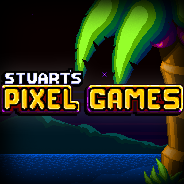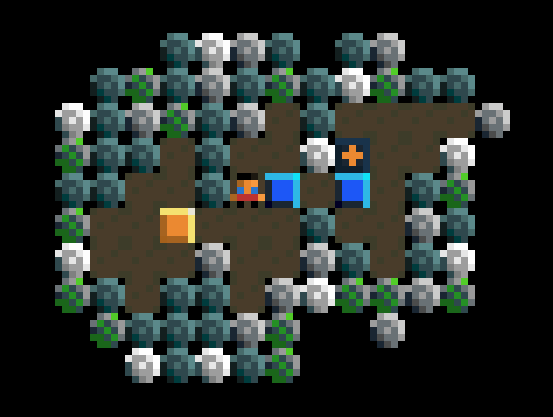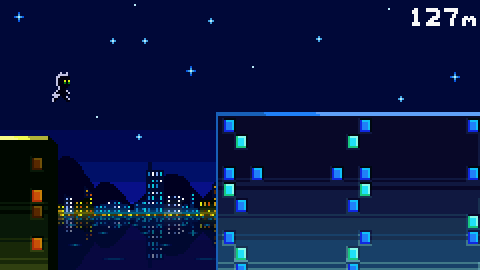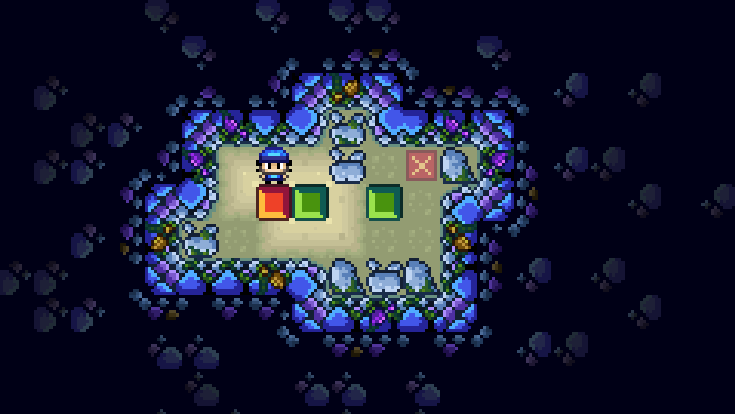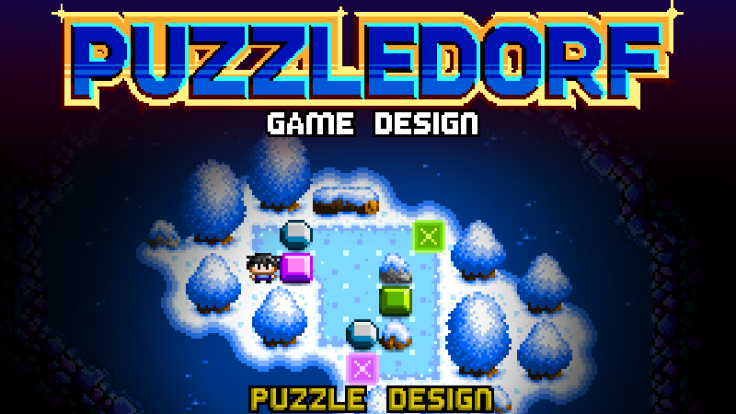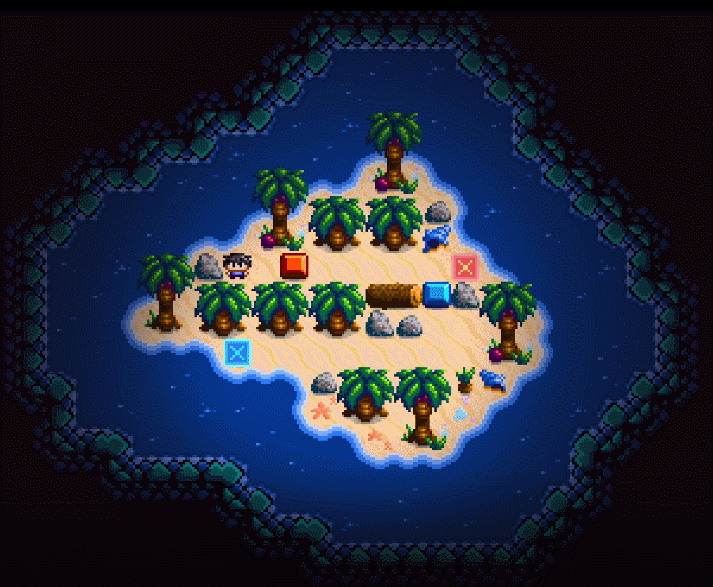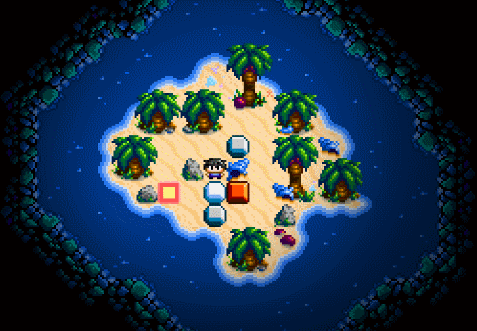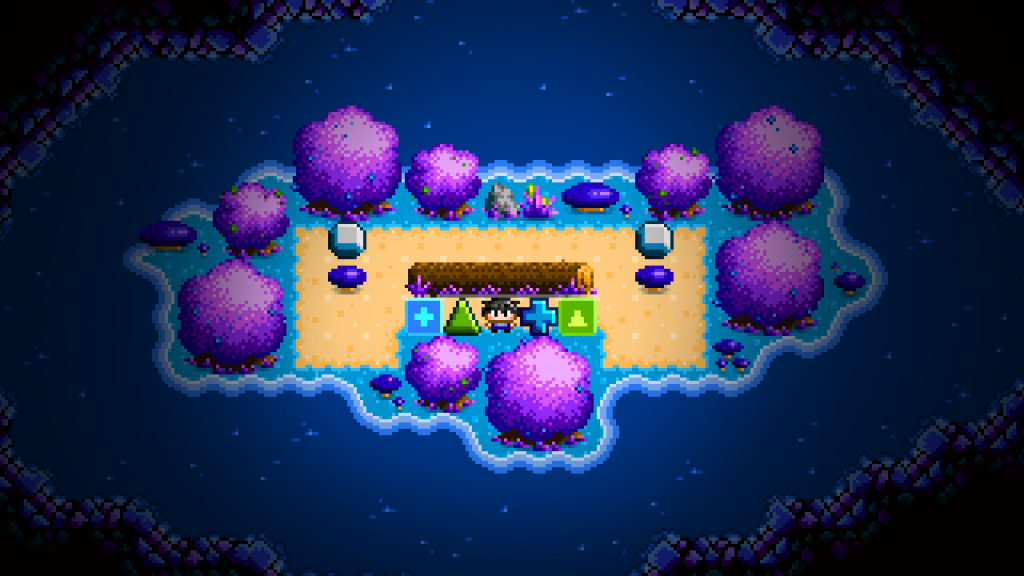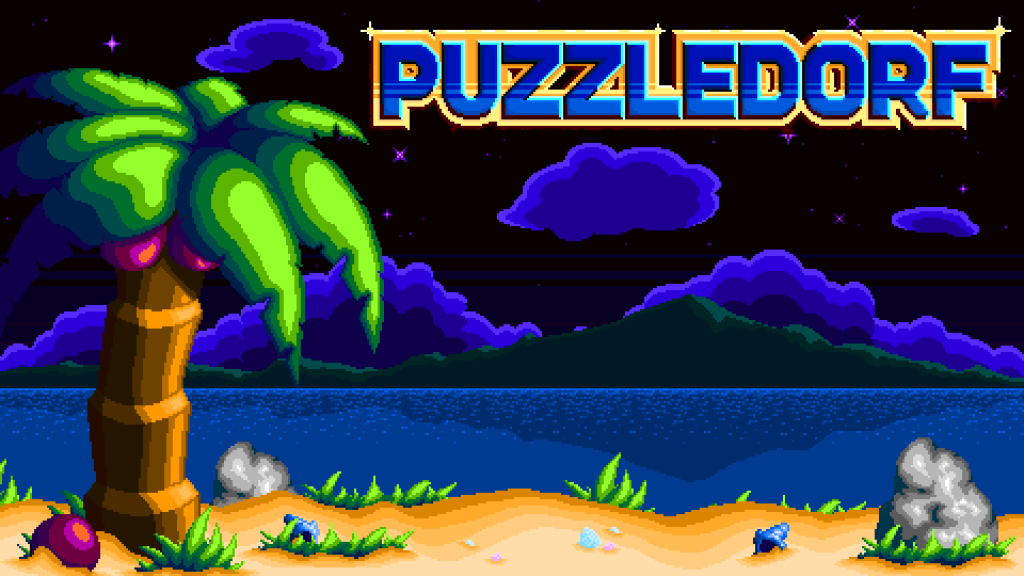This article was originally posted on my blog here.
I had a dream to make video games. People around me seemed to think I should "get a real job". I ignored them and went my own way, because this is how I wanted to live my life. Now I've made Puzzledorf. This is how I did it.
ABOUT THE DEVELOPER
I'm a solo developer who does everything myself. I taught myself pixel art and game design, and studied music and business. Puzzledorf was developed with Unity and C#. Living in South Australia, this is my first commercial PC game. I have released a number of small hobby projects previously on mobile and web browse that were useful learning tools, and I got a lot of positive feedback, but this is my first attempt at a larger, commercial game.
DEVELOPMENT BACK STORY
Puzzledorf was 2.5 years in the making. My early experience was making games using visual programming software like The Games Factory. It was a fun start, but as projects got bigger, I realised there was a lot of inflexibility in this software, and the only way to really get my dream going was to learn programming.
To be honest, I had avoided the dreaded word "programming" for as long as I could remember. I had a friend who taught himself to code from books on a Commodore 64, back before it was 'cool' and mainstream like today. He often tried to encourage me to learn programming, but I preferred to do the artwork and come up with the ideas.
Well, the reality is, visual programming tools just aren't good enough yet, and they will always have limitations. If you can do programming, you can do anything. And if you know how to do programming, when you have a really cool idea, you won't have to rely on someone else to make it. You just prototype it yourself. And finding a good programmer to make games with you, someone who is both good and reliable, is really, really hard.
So I bit the bullet and I studied programming at the Academy of Interactive Entertainment to study programming. In the midst of this, I discovered Puzzle Script through a friend purely by accident. He was running a workshop on how to use Puzzle Script. I went along out of curiousity, and I got hooked. Prior to this, aside from Zelda and Tetris, I didn't even like puzzle games.
But I discovered I liked making them, and what's more, people enjoyed playing them. My friends, who also don't like puzzle games, told me my games were addictive, and when I put them up on Newgrounds, I got a lot of very positive feedback, with some people saying they were among their favourite Sokoban games. I found this very encouraging. All of these experiences inspired Puzzledorf. I figured it was worth trying to make a commercial project out of it.
Before I made Puzzledorf I actually made a smaller, similar game for fun called 'The Nodus' for mobile. It is notoriously difficult to stand out on mobile and I was still learning about business and game development, but the feedback I got about the game was positive. It's now buried in the past, but this was the foundation upon which Puzzledorf was laid.
At AIE, I led 2 teams of 10 students on game projects including an RPG prototype (an RPG is something I plan to revisit soon, I hope), which sharpened my design and management skills. I was also learning Unity at the same time as developing the early Puzzledorf prototype.
AIE offer a business incubator program. The incubator is for successful graduates, who prove they have a viable product, to get free office space to work on their game. This lasts for a year. Puzzledorf was my original prototype that I successfully applied to the AIE Incubator for. Development of the game took longer than expected, as games games often seem to do, especially with surprise events like COVID. About a year after the incubator program, the game was finished and released.
CURRENT DAY
Since release, the game has received a limited but very positive response from press, curators and steam players, receiving an 88/100 review from CCGR. Selling copies is harder than expected, but my audience continues to grow and give me positive feedback. I continue to release free updates for the game, including quality of life updates and free new puzzles, with more updates planned. Seeing the slowly growing audience, and people's warm reception to the updates, inspires me to continue updating the project.
Something I am learning is that you're game is only dead when you quit on it. I continue to look at ways to improve the game, but also revise my store page, my marketing strategy and overall online presence. Some of it is also looking at where I already have an audience and figuring out how to make better use of it. I have been rewarded by sales continuing to grow, and also learning a lot and growing my skills. I would encourage any game developer starting out to continue to revise their strategy and keep learning.
I have been fortunate to be featured in several Humble Store sales and have plans to port Puzzledorf to console at some point in the future. Being the writer of an educational blog, I have also enjoyed writing several reflective Game Design articles about Puzzledorf, wanting to share some of what I've learned; articles that were also featured on the front page of GameDeveloper.com.
PUZZLE MECHANICS
So how does the game work?
The goal of Puzzledorf is to push the correct coloured block onto the correct coloured target (there are colour blind options). Typical Sokoban (block-pushing puzzle) games have one type of block and target. Puzzledorf also has boulders that have no destination; they are purely obstacles. This combination of boulders and different block colours, as far as I'm aware, is unique to my games. It was an idea I originally experimented with on my free Newgrounds games back in 2014.
Having the boulders and multiple block colours may seem like a subtle change, but it makes it easier to create situations that look simple, but are more complex than they appear. This leads to far more interesting puzzle designs and gameplay experiences than having just one block type.
DESIGN PHILOSOPHY
Puzzledorf was based around the question, “What makes a good puzzle?” I spent a long time making puzzles and watching people play them, trying to answer this question - in a way, that started back in 2014. But with the AIE Incubator, I pursued an answer to this question with a passion. Through repeated testing, I refined it down to a few guidelines:
- Something that (generally) looks simple, but is harder than it looks
- The problem is clearly conveyed at a glance, with clean design
- Solving a puzzle should have a clear 'A-ha!' moment
- Accessibility by teaching through experience and design
- To try and be welcoming to new players by growing their skills and not jumping difficulty too soon
- To try and challenge all skill levels
- Difficulty is created through requiring advanced puzzle solving techniques, not by creating larger puzzles with more elements
These are the guidelines I tried to apply to Puzzledorf. In regards to accessibility, I also added colour blind modes.
Testing suggested that as puzzles got larger and more complex, people were more likely to be scared off and not even attempt them. I believe this is partly because our brains have trouble taking in the visual information of large puzzles after a certain point. Therefore the puzzles problem, and potential solutions, are not immediately obvious.
Thus, people don't want to try solving the larger puzzles at this point, because they don't feel they can see a solution. Whereas when a puzzle looks simple, you start to see potential solutions, and feel like having a go. Even if you get stuck, you think you can see another solution to try, so you keep playing, and when you finally get that 'a-ha!' moment and solve it, it's incredibly satisfying. That's my theory.
Furthermore, by increasing difficulty gradually, and teaching new players the appropriate skills as they go, it makes it easier for newcomers to experience the game, but also challenges veterans with the harder, later puzzles.
You can look at further reading on my Puzzledorf design principles here.
FINAL THOUGHTS
It's been a difficult journey getting to this point, and while at times being a game developer, especially a solo one, can be incredibly stressful, it is also an incredibly rewarding path. People now often tell me that my "job" sounds cool, and I'm glad I stuck at it and didn't let anyone sway me otherwise. A friend still occasionally suggests I should "get a real job" that pays better, but I'm happy with where I'm at. I just don't want to do anything else and I have enough.
I think ahead to all the things I plan to do, the games I want to make, and it excites me. And I still get excited about the things I have planned for Puzzledorf. There are days when it's tedious, but the reward of finishing the work, and seeing people play it, is worth it.
If you enjoyed reading, don't forget to check out Puzzledorf!

